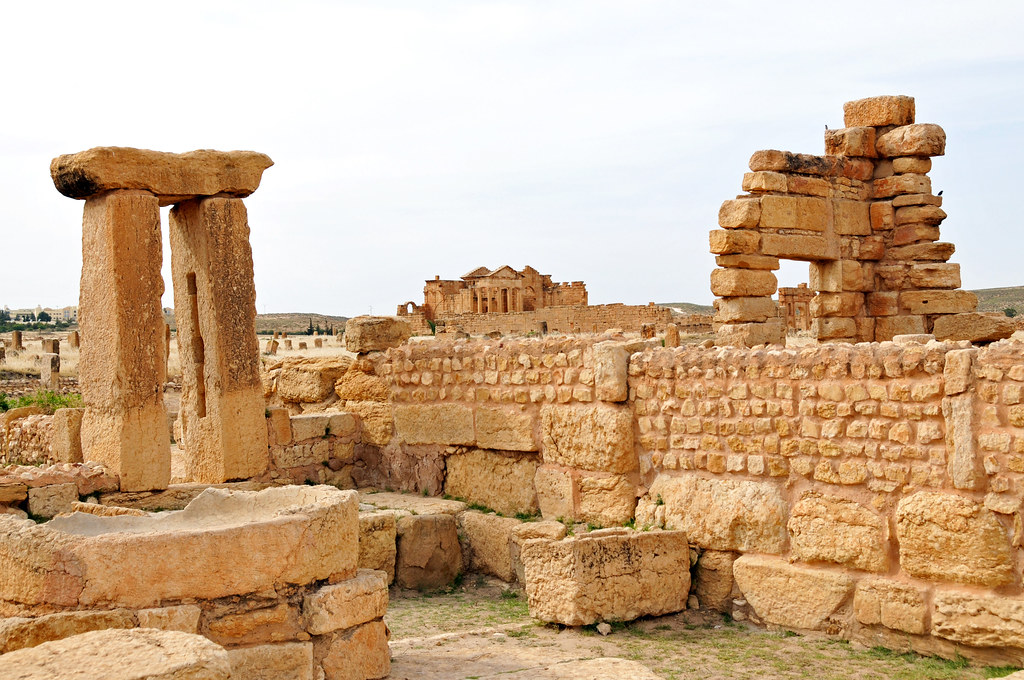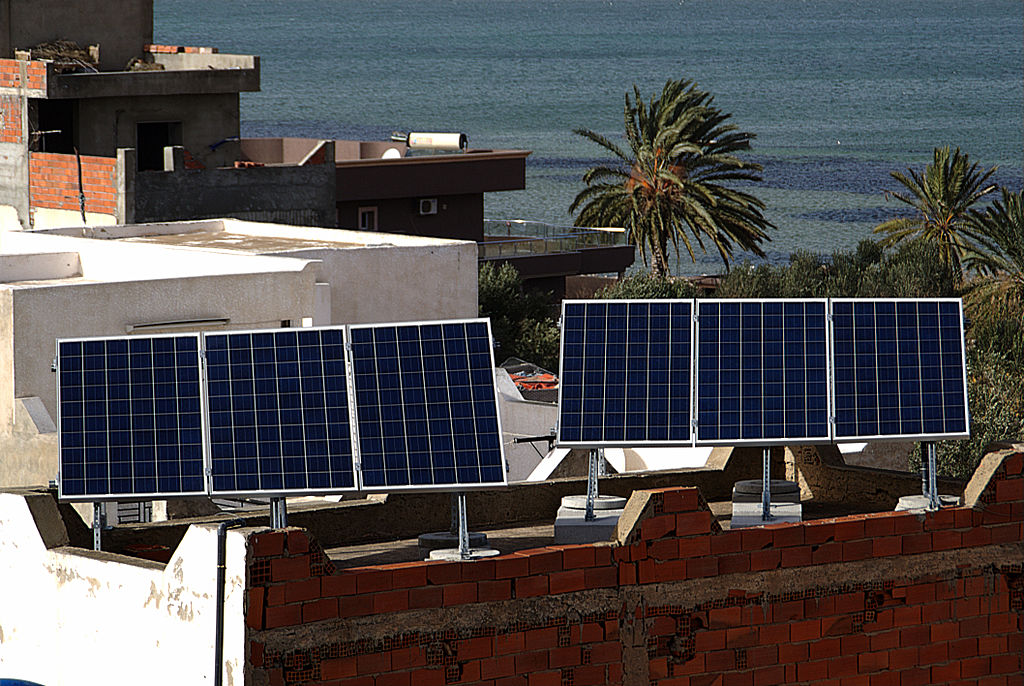By: William Edwards
Produced & edited by: Michelle Michael
In the more than 3,000 hours of sunlight that
the southern half of Tunisia soaks in a year, an increasingly energy-hungry
Europe sees an opportunity.
That’s why the European Union, eager to partner
with a politically stable nation in North Africa, has agreed to invest in a
cable and solar power plant that would send energy directly to Malta, Italy,
and France, if the involved governing bodies can come to a deal.
While the E.U. would stand to benefit from an
agreement, economists believe a successful negotiation will benefit Tunisia,
too. The project would provide substantial economic relief to the country,
which expects to see a decrease in resources like water, crops, and energy
stemming from climate change.
The country plans to start exporting solar energy from the Sahara to Europe
“Tunisia has a huge potential in renewable
energy that—if it is valued—could help the economy to grow rapidly,” said Dr.
Aram Belhadj, an assistant professor of economics at the University of
Carthage. “Paying attention to solar energy could resolve many social and
environmental problems that could threaten the whole Tunisian transition
process such as unemployment, regional inequality, air pollution, and water
scarcity."
Climate Change in Tunisia
Tunisia is not among the countries that are most
culpable for climate change. According to the country’s Ministry of Environment
and Sustainable Development, it only contributes 0.07 percent of the world’s
total carbon emissions.
But culpability bears no relation to who will
inherit the consequences of climate change. Tunisia, who in 2014 acknowledged
in its constitution the government’s duty to protect its citizens against the
rising global threat, knows it is on the losing side of the looming crisis.
It will see its landmass, with half of its
border on the Mediterranean coast, shrink because of rising seas. It will
continue to endure hotter summers; suffer from harsher droughts; and as a result,
likely see a decrease in the production of crops like olives, dates, and grain—exported
commodities that play a crucial role the country’s agriculture industry (according
to the Oxford Business Group, these account for about nine percent of the
country’s GDP).
“What I’ve experienced on my land is that we’re
now five months without rain” said Malek Lakhoua, a physician who also operates
his family’s olive farm, Domain Sidi Mrayah, in Zaghouan, about 35 miles south
of Tunis. “We see a decrease in the rate of the rain in general, and also a
period of rain which is not tolerant of the growth of the trees... This kind of
change influences the quality and especially the taste of the olives.”
Agriculture, Irrigation & Economy
 |
Part of an olive press in Tunisia. Photo courtesy: Dennis Jarvis via flickr
|
Olive oil is Tunisia’s most lucrative
agricultural export—they are consistently one of the world’s largest producers
of it. The warming temperatures will have the greatest impact on small farms
like Lakhoua’s, which he says produces about 5,000-6,000 liters of olive oil
per year. Conditions worsen when farms get farther south in the country and
closer to the Sahara Desert. Larger farms who can afford to adequately irrigate their crops are
less affected at the moment.
“In the absence
of irrigation opportunities, there is a risk of tree loss. However,
comparatively remunerative olive oil prices—with strong international demand in
recent years—encourage farmers to irrigate,” said Dr. Mohamed Salah Bachta, a
professor of agro-economics at the National Institute of Agronomics in Tunisia.
“Some farmers have adopted intensive systems—irrigation that has a high density
per hectare.”
However, if water continues to become more
scarce, it will become harder for farmers to afford intensive irrigation
without raising their prices. According to Cairo Jennings, a United States
diplomat who worked in the U.S. Embassy’s Environment, Science, Technology and
Health portfolio in Tunis from 2015-2017, Irrigation also becomes logistically
more difficult over long distances because of surface evaporation and the high
cost of installing pipes.
A lack of water from severe droughts will also
lead to greater food scarcity within the country—the country already imports
half of its food, according to Jennings—and affect the energy supply as well,
as the country harvests hydroelectric power from dams. This is where solar
energy, both through exporting it and using it within their borders, could help
the country, he said.
“Tunisia’s trying to sell this as ‘Hey, you pay
to put in this power interchange and we will build out our solar capacity in
the desert and you can basically use us as your power plant,” Jennings said.
“If they could sell electricity to European markets and get paid in Euros, then
that would be extremely supportive of their economy.”
A Role Model in the Arab World
 |
Solar panels on the rooftop of a house in Sayada, Tunisia.
Photo courtesy: Wikimedia Commons |
Since the 2011 Arab Spring, Tunisia has been
seen by the West as an example for other countries in North Africa and the
Middle East. It has the longest surviving democratic government since the
revolution. It has recently made humanitarian advances in overturning laws that
the government deemed unfair to women. Now, economists say, a solar deal could
make Tunisia an economic example, too, for its neighboring nations.
“Countries like Libya and Egypt could develop a
new economic model based on high added-value sectors, notably renewable
energy,” Belhadj said. “Diversifying the economy, decreasing the weight of
fossil fuels, and developing new exports strategy could then boost the growth
and secure the current citizen welfare—without jeopardizing the future
generation’s wellbeing—in these countries.”
Global Spotlight is a nonprofit educational production, constituting a ‘fair use’ of any such copyrighted material as provided under Section 107 of the U.S. Copyright Law.





No comments:
Post a Comment